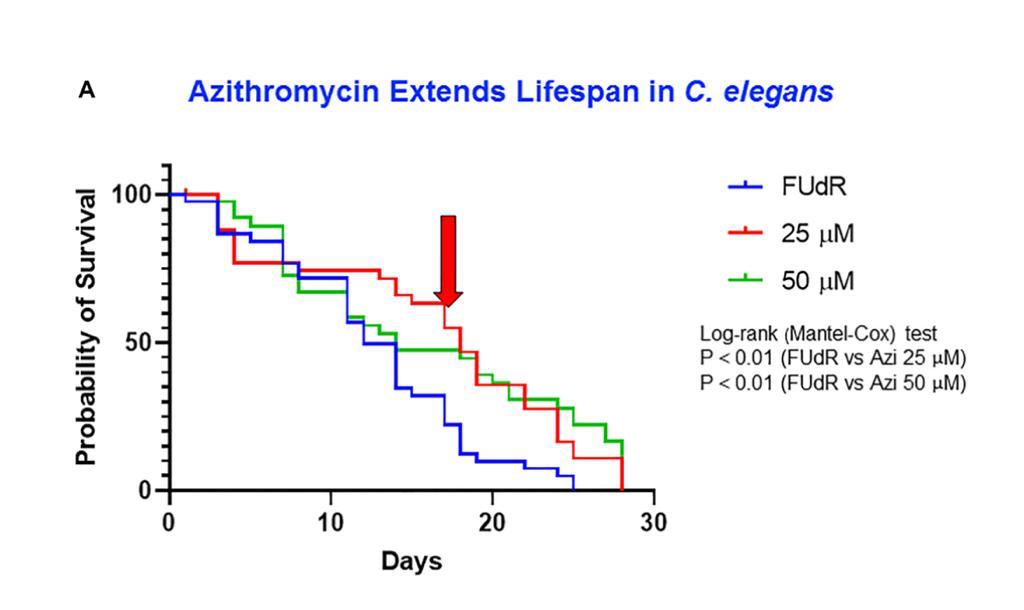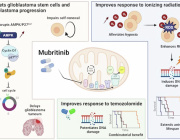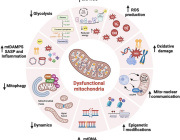Mitochondrial Inhibitors Extend Lifespan in C. elegans: Insights from a Longevity Study

Doxycycline extends lifespan of C. elegans
News Release, World Mitochondria Society, Berlin - Germany – November 27, 2023
Aging, characterized as a progressive degeneration of cell and tissue functions, might be significantly influenced by mitochondrial processes.
Bonuccelli et al., from the University of Salford, United Kingdom used Caenorhabditis elegans (C. elegans) to explore the effects of mitochondrial inhibitors on aging.
Key Findings:
- Treatment with doxycycline and azithromycin (mitochondrial ribosome inhibitors) notably increased C. elegans' median lifespan.
- Improvements were observed in pharyngeal muscle function and a reduction in lipofuscin accumulation.
- ATP consumption was lowered in treated worms, indicating reduced energy expenditure.
- DPI, an inhibitor of mitochondrial complex I and II, also prolonged the median lifespan.
- Conversely, vitamin C treatment did not extend lifespan and resulted in higher ATP levels.
Conclusion: The authors suggest that mitochondrial inhibitors can effectively extend lifespan and counteract aging-related declines in C. elegans, highlighting their potential in aging research.
Photo Credits: Bonuccelli et al. Aging (Albany NY). 2023
World Congress on Targeting Mitochondria
World Mitochondria Society
wms-site.com






























































